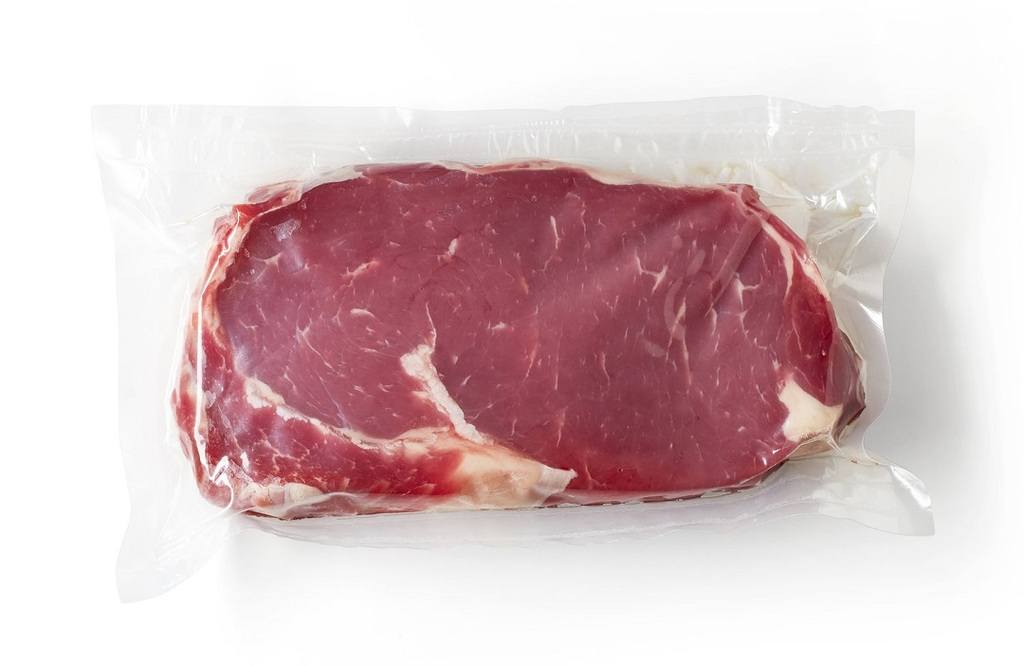For hunters and venison enthusiasts, proper storage is key to enjoying your prized meat before it spoils. Vacuum sealing venison can extend its shelf life in the fridge considerably. But how long exactly does vacuum sealed venison last refrigerated? Let’s take a closer look at maximizing refrigerator shelf life.
Overview of Vacuum Sealing Benefits
Vacuum sealing removes air from the package prior to sealing, creating an oxygen-free environment. This inhibits bacteria growth and oxidation, preserving flavor and freshness. Key advantages include:
- Prevents freezer burn
- Retains natural moisture
- Minimizes odor transfer
- Slows growth of spoilage microorganisms
- Extends shelf life significantly over traditional storage
When done properly, vacuum sealing can keep venison fresh in the fridge for 2-3 weeks. Follow proper techniques for maximum longevity.
Proper Vacuum Sealing Process
To optimize shelf life, start with high-quality venison free of excess bacteria Seal meat in special vacuum bags or airtight containers, removing as much air as possible Use a vacuum sealer if available. Double check seals for airtight closure.
Proper vacuum sealing removes 99% of oxygen. Any trapped air allows aerobic bacteria to proliferate. Take time to eliminate pockets thoroughly.
Ideal Refrigerator Conditions
Keep refrigerator between 32-38°F (0-3°C) for optimum venison preservation. Consistent cold temperature drastically slows bacteria reproduction.
Store venison in coldest section, away from ready-to-eat foods Keep raw meats on bottom shelf to prevent drips from contaminating other items
Monitor fridge temperature regularly. Higher temps accelerate spoilage. Refrigerator thermometers make checking easy.
Maintaining Freshness of Sealed Venison
Check vacuum bags frequently for any air pockets that may appear over time. Re-seal if necessary to keep an airtight environment. Look for visual indicators of spoilage as well, like discoloration or slime.
Always smell vacuum sealed venison before use. Off odors signal spoilage. Do not consume venison with a sour or ammonia smell.
Adhere to food safety guidelines, cooking venison within 1-2 weeks for optimal quality. Do not exceed 3 week maximum storage time.
Freezing for Extended Preservation
Freezing offers long-term storage for vacuum sealed venison. Frozen properly, venison can last 2-3 years while maintaining quality.
Prior to freezing, ensure venison is vacuum sealed in high-quality, airtight packaging. Remove as much air as possible for best results.
Freeze venison as soon as possible post-sealing. Delay can allow bacteria growth. For quickest freezing, use a blast chiller before storing in freezer.
Maintain stable 0°F (-18°C) freezer temperature. Fluctuations thaw meat intermittently, damaging texture.
Thawing Safely for Consumption
Always thaw venison in the refrigerator, not at room temperature. Slow thawing in the fridge prevents bacterial overgrowth.
For faster thawing, submerge vacuum sealed bag in cold water, changing water every 30 minutes. Cook immediately once thawed.
Microwave thawing is not recommended. This can create hot spots that start cooking meat prematurely.
Never re-freeze venison after thawing. This poses a food safety risk as bacteria can proliferate during the thaw process.
Signs of Spoiled Vacuum Sealed Venison
Check venison for the following before consuming:
-
Off odors – Sour, ammonia, or unpleasant smells
-
Discoloration – Unnatural darkened shades, green/grey hues
-
Slime formation – Clear or opaque slimy residue
-
Mold – Dry fuzzy patches or filaments
Discard any venison exhibiting these signs of spoilage. Consuming could potentially cause foodborne illness.
Tips for Vacuum Sealing Success
Follow these best practices for keeping your venison fresh longer:
- Use high-quality meat devoid of large bacteria loads
- Seal venison in vacuum bags or airtight containers
- Eliminate as much oxygen as possible during vacuum sealing
- Store sealed venison on lower refrigerator shelves
- Maintain consistent 0-3°C refrigerator temperature
- Check seals and smell before use for signs of spoilage
- Cook within 1-2 weeks for optimal quality and safety
Enjoy Your Harvest Longer
With proper vacuum sealing technique and refrigerated storage, you can safely preserve your prized venison for 2-3 weeks. For extended freezer storage, vacuum seal and freeze venison promptly after packaging. Follow these guidelines to maximize refrigerator shelf life so you can continue enjoying delicious venison dishes for months to come.

How long can vacuum sealed meat last in the fridge?
FAQ
How long does vacuum sealed venison good for?
|
HOW LONG CAN YOU FREEZE GAME MEAT?
|
|
|
Type of Game
|
Frozen (VacMaster Sealed)
|
|
Venison (Lrg. Cut)
|
Up to 3 yrs.
|
|
Venison (Ground)
|
Up to 1 yr.
|
|
Bird Game (Poultry)
|
Up to 3 yrs.
|
Does vacuum sealed meat go bad in the fridge?
How long can uncooked deer meat stay in the fridge?
What is the shelf life of vacuum sealed cured meat?
How long does vacuum sealed venison last?
Storage Duration: Vacuum-sealed venison can be stored in the freezer for up to 2 years, maintaining its rich, gamey flavor and tender texture. Refrigerated vacuum-sealed venison can last up to 2 weeks. Tips: Since venison is a lean meat, it’s prone to drying out, so vacuum sealing is ideal for preserving moisture.
How long does venison last in the freezer?
Best Cuts: Backstrap, tenderloin, steaks, and ground venison. Storage Duration: Vacuum-sealed venison can be stored in the freezer for up to 2 years, maintaining its rich, gamey flavor and tender texture. Refrigerated vacuum-sealed venison can last up to 2 weeks.
How long does vacuum sealed meat last?
Let’s dive into the topic and provide the answers you’re looking for. How long can vacuum sealed meat last in the fridge? Vacuum sealed meat can last anywhere from 1-3 weeks in the refrigerator, depending on the type of meat and the conditions under which it was stored. Proper handling and storage are key to maximizing the preservation period.
How should you store venison?
To store venison in the fridge or freezer, remove any fat and bloodshot meat, as these areas spoil faster. The best packaging for venison is vacuum sealing.
